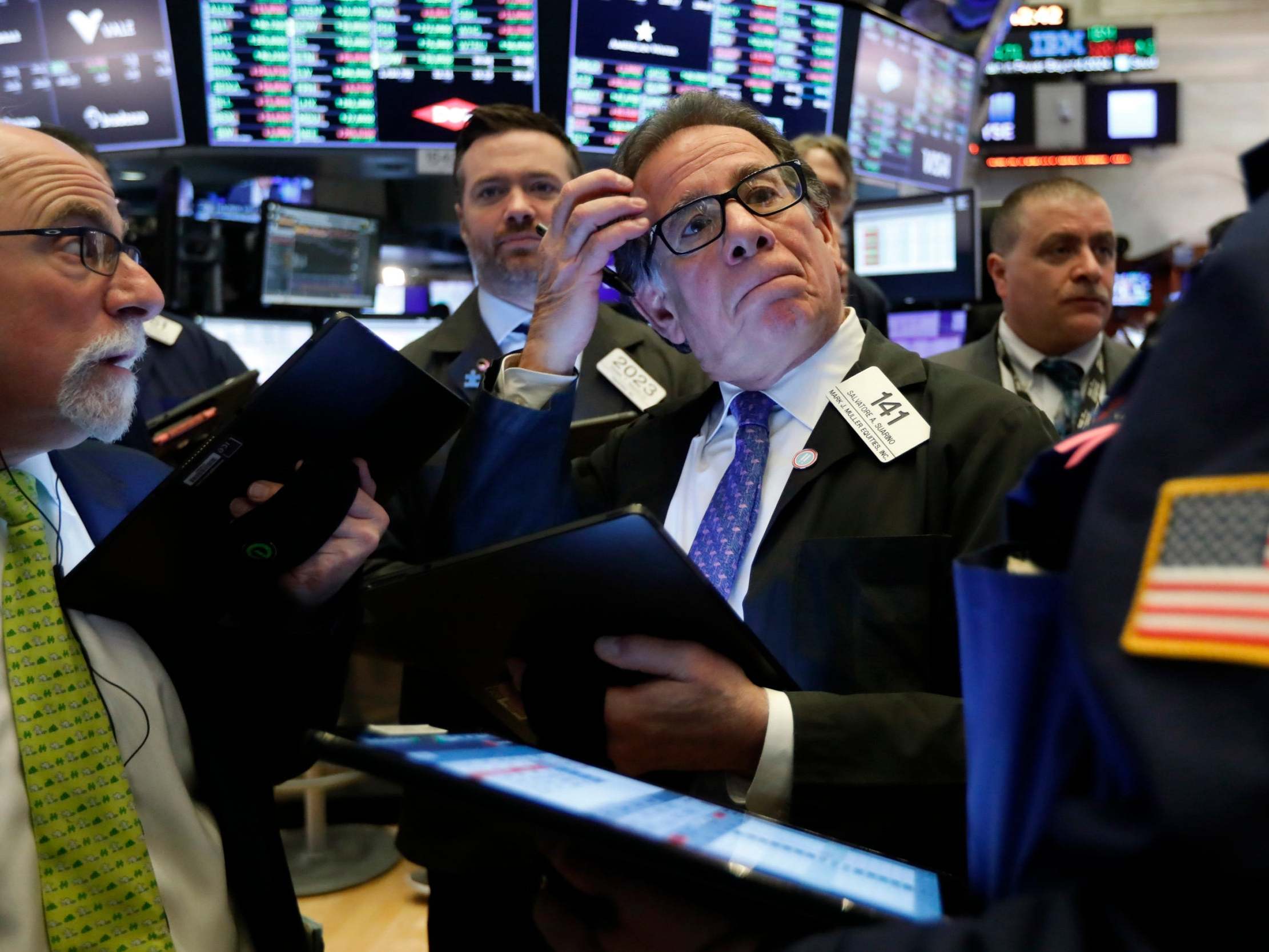The markets have been struck down by coronavirus – they’ll recover soon enough
In a few months’ time, they will have regained their confidence, predicts Hamish McRae


There will be a recession. We don’t know the path of the coronavirus infections sweeping across the world, nor the effectiveness of the public health measures to combat it, nor the scale of the economic damage it will do. But we know one thing. The long expansion of the world economy since 2010 is over. It took a while for the financial markets to realise this, but my word, they know it now.
For the UK, there is the immediate issue of Wednesday’s Budget: how to shape fiscal policy to best tackle the economic and financial consequences of the health emergency. Other countries will take fiscal measures, too, and of course there will be monetary measures including, in the case of the US and UK, cuts in interest rates. The European Central Bank will do something this week.
We don’t know the detail, or the effectiveness of such policies, though we should note the reservations of Mervyn King, former governor of the Bank of England. He thinks interest rate cuts are not an effective policy in responding to the virus, and I think he may well be right.
Still, if you accept that the expansion is indeed over, what can we say about the path ahead both for the world economy and for financial markets?
National economies do not move in lock-step, but those of the developed world do move more or less in the same direction at more or less the same time. The sky has darkened. Whereas a couple of weeks ago, it looked as though Italy (for obvious reasons) and Germany (because of its exposure to China) would have a recession, but the rest of the developed world might just avoid it, that now looks too optimistic. The US may avoid recession, but it faces the additional disruption from the plunge in the oil price, so recession is more likely.

Yet if recession is likely, recovery is certain. Every recession since the Second World War has been followed by a recovery within a few months – even, as in 2008-9, the initial policy response was inadequate. This is not likely to be nearly as bad, at least in economic terms, as that situation because the financial system is much stronger than it was then.
So why the collapse of confidence in the financial markets, driving down equities and yields on government securities? Most people focus on the plunge in share prices, but more remarkable was the fact that the yield on the 10-year US Treasury bond rate hit 0.318 per cent, the lowest ever (yup, ever).
As far as equities are concerned, three things have come together: the disruption driven by the coronavirus; the oil war between Russia and Saudi Arabia; and rumbling worries about overvaluation of shares generally. We are not, however, in uncharted territory; we know we get bear markets like this every few years. They usually last three to six months, and you get falls from peak to trough of 20 per cent to as much as 50 per cent.
What is the likely fall this time? Well, we may have seen the bottom, but I don’t think so. Price/earnings ratios, particularly in the US, are still above the average since the 1950s, and there will be some decline in corporate earnings in the months ahead. In any case, the S&P 500 is only a few weeks off its all-time high, and bear markets take longer to play out. They may not go much lower, but history suggests a decisive recovery will not take place for a few months. Besides, a lot of wealth has been destroyed, and owners of that wealth will be cautious spenders for a while yet.
So expect a turn in the markets by the late summer, but not before.
As for fixed-interest investments, this is madness. For government securities to go negative must be wrong. The UK two-year yield went negative, meaning that you actually pay money to lend to Boris Johnson’s government. It is no comment on him, or the government, or the Bank of England, to assert that this is nuts.
This is a classic collapse of market confidence. In a few months’ time, the present fears will be history. But we have spring and summer to get through first.
Join our commenting forum
Join thought-provoking conversations, follow other Independent readers and see their replies
Comments
Bookmark popover
Removed from bookmarks